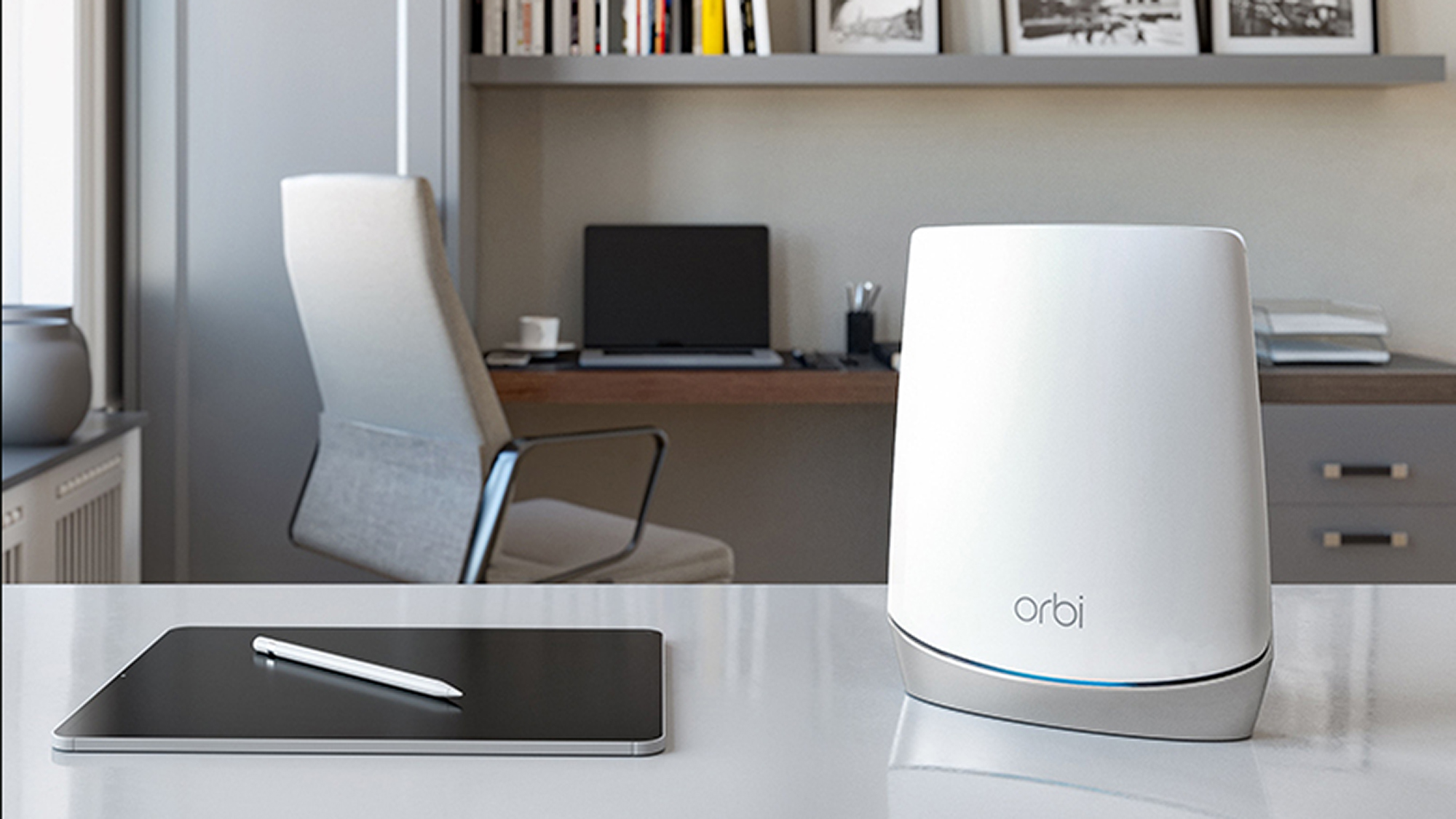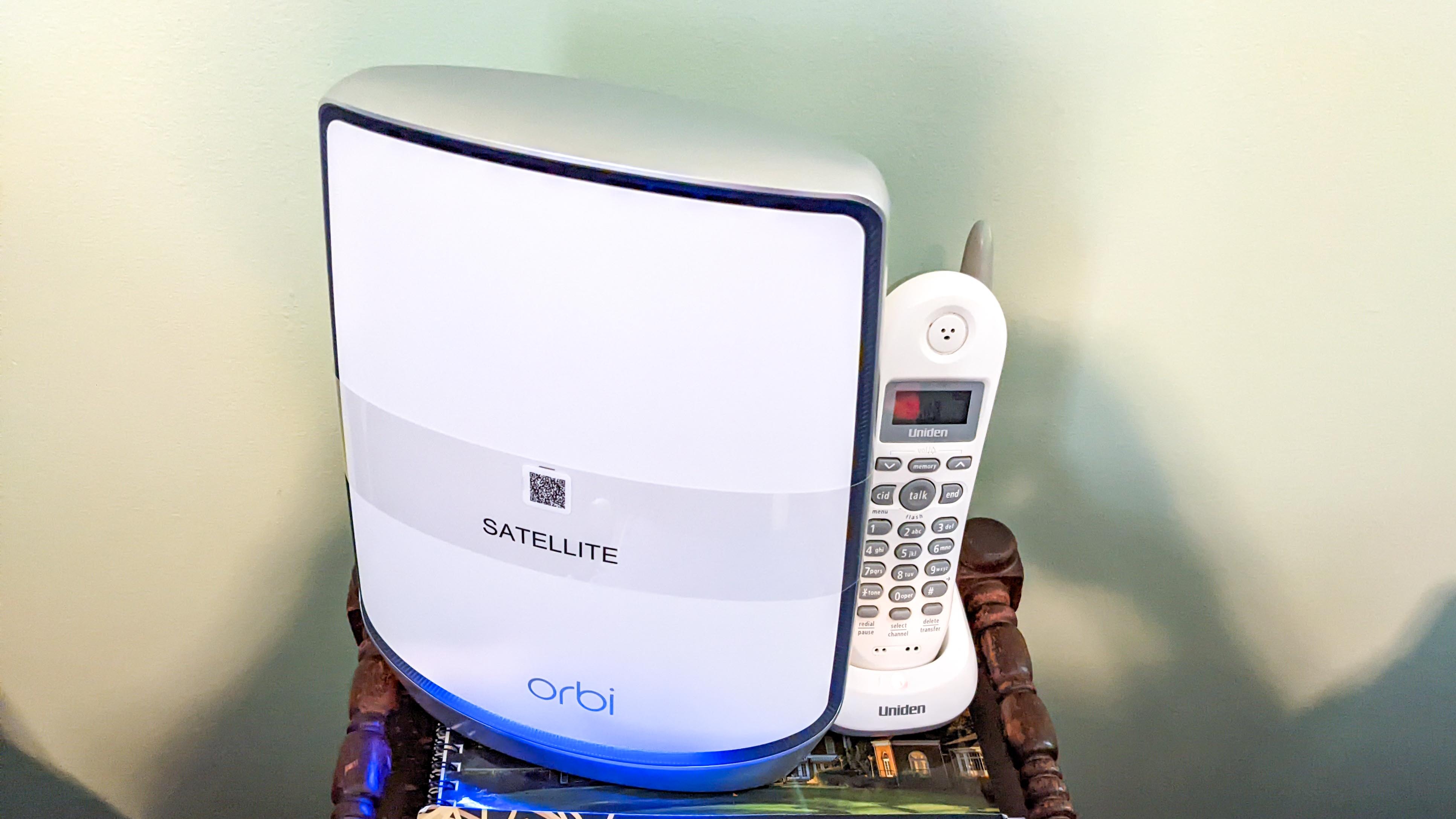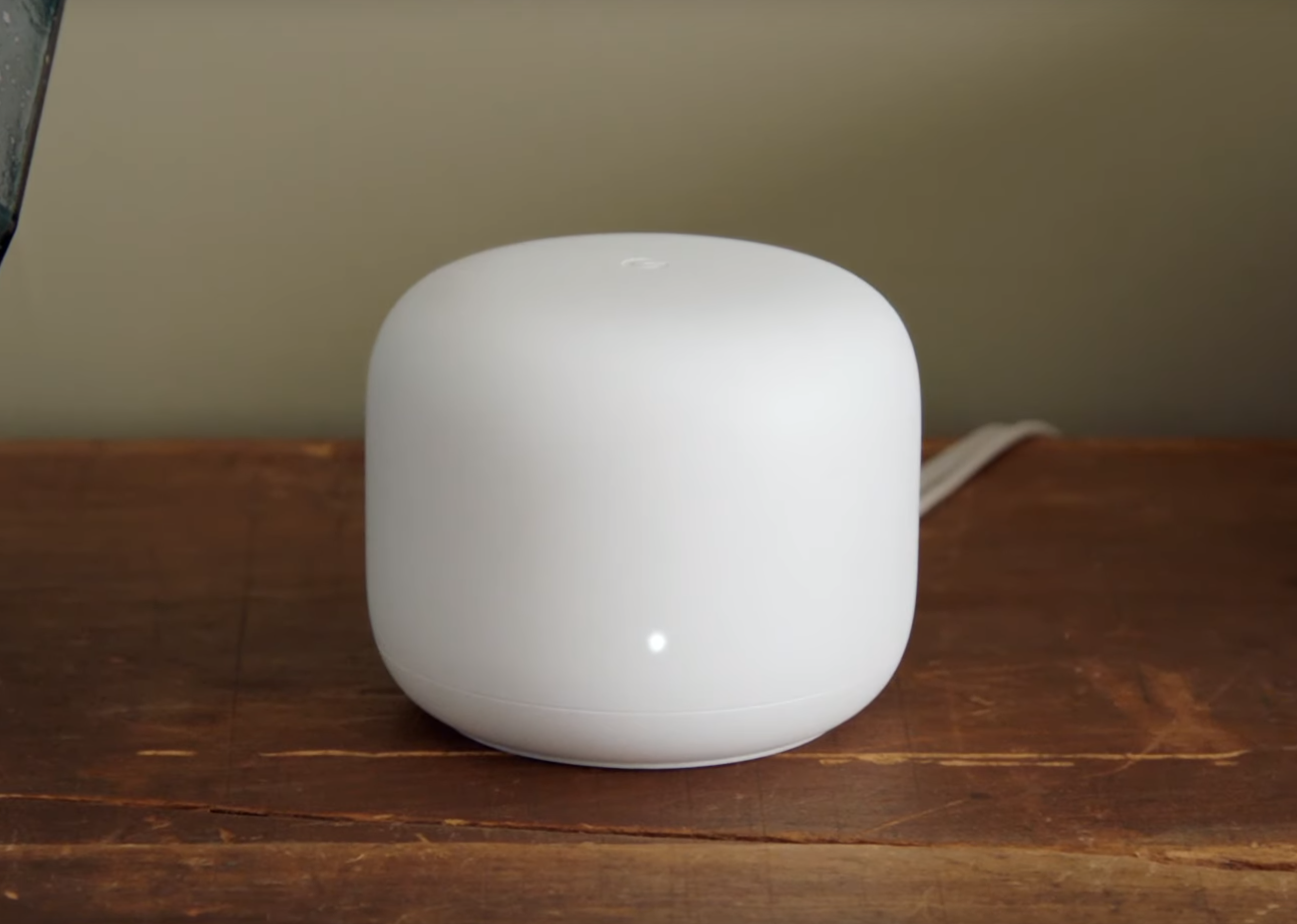This mesh router solved an impossible internet conundrum for me
A Netgear Orbi system helped save a family trip, but the price is steep

I’ve been using the Netgear Orbi mesh router system for two days. At present, I find myself torn between singing its praises and wishing I had never installed it at all. While the Orbi is nearly magical in how it solved a seemingly insoluble Internet problem, knowing that it’s financially out of reach for all but the wealthiest tech aficionados can’t help but sour the experience a little bit.
First, a little background. My partner and I live in a modest one-bedroom apartment in New York City. This has its ups and downs, but it also means that we’ve never needed an especially powerful router to reach every corner of our space. Her parents, on the other hand, live in a sprawling house in suburban Georgia. As I learned firsthand, this setup requires somewhat more specialized hardware.
Without going into an extensive architectural breakdown, the family home is a one-floor house that covers a few hundred feet, if you were to walk across it in a straight line. This wouldn’t necessarily be a problem, except that the modem and router are located in an office space in the back of the house. It’s a more recent addition to the building, and extends in kind of an L shape away from the master bedroom. In other words: It’s not very close to the kitchen, living room, secondary bedrooms or anywhere else people might normally need Internet access.
I’ve been visiting this house for more than five years, and I’ve tried a handful of tricks to extend Internet coverage during that time. I tried moving the router closer to the door; I tried buying a Wi-Fi extender; I’ve tried resetting the modem and router in the living room. None of my solutions worked that well. Moving the router didn’t affect anything; the extender was still too far away from the source; the living room wasn’t rigged up for cable Internet.
Before my most recent trip, I bemoaned the situation to a Tom’s Guide editor, who said that perhaps a mesh router would solve the problem. I figured it was at least worth a try.
The mesh router solution

For those who aren’t familiar with mesh routers, they’re essentially a way to combine Wi-Fi router and Wi-Fi extender technologies. You start with one mesh router, which you hook up to your modem, just like a regular router. Then, you install a handful of “satellite” nodes elsewhere in your house. Each one rebroadcasts the Wi-Fi signal, using the same Wi-Fi login information, and without the signal loss that kneecaps many standalone extenders.
As such, mesh routers are ideal for large or sprawling houses, where a central router can’t handle all the traffic, and extenders would have to leapfrog off of each other. In theory, each satellite node in a mesh network provides just as strong a signal as the central router.
Get instant access to breaking news, the hottest reviews, great deals and helpful tips.
One of our favorite mesh routers is the Netgear Orbi WiFi 6 (RBK852 or RBK853), so I got in touch with Netgear to see whether they’d let me test out a unit. After all, if the Orbi could provide fast, stable Internet in every room of the suburban family house, it would be the first product I’d ever tried that could actually do so.
Setup and performance

When I was a teenager, I made some extra pocket money by installing Netgear Wi-Fi routers when having wireless Internet in your home was a fairly new idea. And during every single installation, something would go wrong enough that I had to spend an hour on the phone with Netgear customer support to figure it out.
I braced myself for a similar experience with the Orbi, but there was really nothing to it. The RBK853 box comes with a central router and two satellite nodes, three power cables and one Ethernet cable. That’s it. I plugged the router into the modem, and set up the two satellites at equidistant points around the house. I turned everything on, went through a few prompts on the Orbi app, and waited for firmware updates to take care of the rest.
All told, the process took about 20 minutes, and I needed my partner’s help only to run a cable behind a cramped desk setup. And, at the risk of underselling the device, it simply works as advertised. The main Orbi router broadcast a strong signal (-40 dBm) across a home office, a master bedroom, two hallways and half of a living room, with a consistent 60 Mbps download speed. The node in the dining room, on the other side of the house, did equally well.
In fact, since I set up the Orbi, I’ve had only one major gap in Internet service. When I went into the office to investigate, I discovered it was because the ISP had temporarily blinked, and the modem itself had to reset. The Orbi continued trying to deliver signal the entire time.
In short, a mesh router essentially did the impossible. I decided that after we returned Netgear’s test unit, we ought to buy a similar setup for the whole house and solve the Internet problem once and for all.
Then, I saw the price tags.
The ugly side of mesh routers

Since I learned about mesh routers via my editor and requested a test unit from Netgear, I didn’t realize going into the project just how much they cost. My partner asked me what a mesh router went for, and my stab in the dark was “about $400,” thinking it was the same as a high-end router.
That’s not the case, as it turns out.
The RBK853 retails for a whopping $1,000 — and it is by no means the most expensive mesh setup on the market. A router with a single satellite node costs $700; a router with three nodes costs $1,300. This is not an accessory that the average person could afford without significant forethought, if they could afford it at all. As our networking writer Brian Nadel pointed out in his Netgear Orbi Wi-Fi 6E review, this is analogous to the average monthly rent or mortgage payment in the United States.
Granted, Netgear is a premium brand with premium products, but other mesh systems are fairly pricey as well. A Google Nest Wifi system costs $349 for a router and two nodes — but it’s also less powerful than the Orbi, meaning that we’d probably need a third (or even fourth!) node, which could bring the total price up to between $498 and $647. This is a much more reasonable price, but still more than it would cost for a brand-new PS5 or Xbox Series X.
The Amazon eero Pro 6 starts at $229 for a one-pack and goes up to $399 for a 2-pack and $599 for a 3-pack.
The TP-Link deco, on the other hand, is only $190 for three routers/nodes — but TP-Link also has a long history of poorly secured devices. And if there’s one gadget where you really don’t want to skimp on security, it’s your router.
The bottom line is that while we could wait for a sale or try to hone in on a cheaper system with a similar coverage area, a good mesh router system is expensive. Like most other new tech, this price could go down over the next few years — or it could skyrocket, due to supply chain issues. Either way, mesh routers seem to be very much a “get what you pay for” technology.
While evaluating the Netgear Orbi, I’ve been torn between two proverbs: “It is better to have loved and lost, than never to have loved at all” and “What you’ve never had, you never miss.” I’m glad that my partner’s family and I got one week of perfect, unadulterated Wi-Fi. It’s also sad to think that we’re not going to have this experience again until mesh technology gets a significant price break.
When I head back to my apartment, I will miss having all the extra space that the suburbs afford. But I’ll also be happy to get a perfect Internet connection with one small, inexpensive router.
Next: Before you buy one, there is one problem with mesh routers that you need to read about.

Marshall Honorof was a senior editor for Tom's Guide, overseeing the site's coverage of gaming hardware and software. He comes from a science writing background, having studied paleomammalogy, biological anthropology, and the history of science and technology. After hours, you can find him practicing taekwondo or doing deep dives on classic sci-fi.
 Club Benefits
Club Benefits





